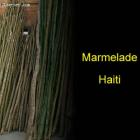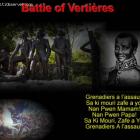The Massacre at Raboteau
ADVERTISEMENT
In the same month, FRAPH invaded every home in Raboteau, arresting, beating and, sometimes, throwing their victims like garbage into open sewers. They also pursued those who escaped, stalking the citizens, arresting, torturing and/or shooting them. They even went so far as to commandeer citizen fishing vessels, shooting at escapees fleeing by sea. As a final malicious act, FRAPH refused to let victims' relatives claim their bodies.
The Criminal Tribunal of Gonaïves tried the case, with Brian Concannon and Mario Joseph of the Bureau des Avocats Internationaux (BAI) prosecuting the defendants on behalf of their clients. They and other Haitian and International attorneys fought for five years to bring the Raboteau Massacre defendants to trial, the case being the most significant human rights trial in the Americas, in 20 years. BAI not only represented the victims during the trial, but worked closely with special police investigators. Before the trial, an international team of forensics experts exhumed and analyzed the bodies of three victims killed during the massacre, and DNA evidence extracted corroborated the victims' reports.
During testimony, it was revealed that the High Command had fore-knowledge of the abuse paramilitary forces had heaped on the Raboteau people, during the de facto military's regime from 1991 - 1994; in fact, Haiti's whole military structure approved of the repeated attacks on pro-democratic Aristide supporters. In allowing the Massacre to happen, the High Command violated military regulations and international law.
At trial, 59 people were tried for their crimes against the Raboteau people, some in absentia. High-ranking officials of the 1991 - 1994 de facto regime were among those absent at trial, chiefly Emmanuel "TOTO" Constant, founder of FRAPH. The jury convicted 16 of 22 defendants and all 37 in absentia, giving them life sentences. This victory overturned Haiti's historical propensity to stage wide-spread political assaults, in violation of international law.
On the defendants' appeal, the case went to the Supreme Court, whose jury represented a cross-section of Haitian citizens. Shockingly, the Court, in May of 2005, reversed the verdict of the imprisoned defendants, in defiance of the Haitian Constitution of 1987. The Court also refused the victims a re-trial, but unfairly gave the absent defendants a right to a re-trial. Outraged, Amnesty International protested the decision as a "huge step backwards." Denied appeal, the Raboteau Massacre victims brought a civil action against the High Command, and in May 2008 were awarded over $400,000 in punitive damages from Col. Carl Dorélien, who escaped to Florida when democracy returned to Haiti.
Read more: jean-bertrand aristide, Jean Bertrand Aristide, gang, Raboteau, massacre, FRAPH, 1991, Security Crime Law and Order
« Professor Jean-Claude Bajeux is Dead | Main | Emmanuel "Toto" Constant and American Foreign Policy, Match Made in Hell »
Leave a Reply
Name (required) E-mail (required, will not be published)
» »
Our objective is to share with you news and information about Haiti and the people of Haiti. Traditions, habits and the way we were or grew are alive in this site. We highly recommend that you Subscribe to our Newsletter and also share with us some of the things that are memorable and made us unique people.


 Something to think about
Something to think about  Newsletter
Newsletter  Marmelade, Haiti
Marmelade, Haiti  Haitians are a Proud People
Haitians are a Proud People  Battle of Vertieres
Battle of Vertieres